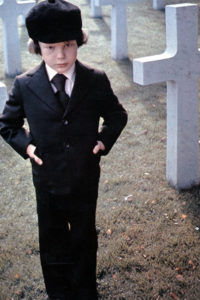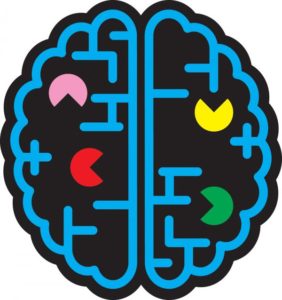by James Scott Bell
@jamesscottbell
 As Yogi Berra once observed, “90% of the game is half mental.” That’s why I wrote a book called The Mental Game of Writing. We have to master the space between in our ears in order to produce our best work on the page.
As Yogi Berra once observed, “90% of the game is half mental.” That’s why I wrote a book called The Mental Game of Writing. We have to master the space between in our ears in order to produce our best work on the page.
I’ve noticed many blog posts over the last five months talking about what a struggle it is to write in Virus World. These writers talk about a lack of energy, spark, interest, creativity. The feeling is described in a post by Peter Olson: “A frustrating sense of ‘molasses’ clogging your thoughts. A fatigue you just can’t seem to shake. Feeling ‘tired’ or ‘worn-out’ as you … journey through normal days that simply don’t feel as normal as they should.”
Every now and then a scribe wonders if there’s something wrong with them. Do they really want to do this anymore? Is the joy gone for good?
Turns out there’s an understandable, biological reason you feel this way. Your brain is experiencing “culture shock.” From the above article:
When someone moves to a completely new culture, many of the ‘autopilots’ your brain uses for thousands of small decisions every day become ineffective. In a similar way, your current environment has likely changed sufficiently enough that many of your own ‘autopilots’ are no longer working. When this happens, the next remaining option for your brain is to use a second decision-making process that requires far more effort and energy (glucose) to operate. Your body can only supply glucose to your brain at a certain rate – a rate far below what would be required to use this kind of thinking continually. Thus, additional thinking about routine matters has likely left you with a chronically depleted level of glucose in your brain. All to say: You are experiencing “culture shock”.
Psychologist Daniel Kahneman, winner of the 2002 Nobel Prize in Economic Sciences, explains how our brains work in his book, Thinking, Fast and Slow. Here is a summary:
- Your brain is a great decision-making engine.
- Your brain has two distinct processes it uses to make decisions.
- One of these systems operates quickly and automatically and does not require much energy.
- One of these systems operates slowly and deliberately and requires a lot more energy.
Kahneman gave names to the two processes your brain uses. He called one the “fast” system. This kind of thinking has also been called the “subconscious” system. The other he called our “slow” system. “Slow” thinking is what you are doing when you say that you are “thinking” about something.
What’s happening is that our brains have to do a lot more “slow” thinking these days. We used to just run out to the store for groceries with a simple routine: Park the car, get out (without fiddling with a mask), grab a cart, stroll around, thump a cantaloupe, look over the meats, etc. But now we have to think about masks, distance, touching, not touching, hand sanitizing, keeping an eye on that guy coming down the aisle and keeping our feet on the floor stickers in the checkout line. Thus, even this once innocuous little slice of your life drains your brain.
Think of “slow thinking” a bit like ‘turbo’ from the old video games. You need it to power through some parts of life. But use it all and you’ll need to wait for it to come back again. This is why you have perhaps said that your brain feels ‘tired’ after a long meeting, an intense discussion, or after much studying. That ‘tired’ feeling is your brain calling for a break so it can replenish the sugar it just used up.
***
Hundreds of times every day we are now facing moments where fast & cheap was handling your decisions for you … but can’t anymore. Last year greeting a friend didn’t require us to use the limited capacity of slow thinking. But now it may. With many of our autopilots disabled, we are facing a world where we are being forced to think in ways we are not accustomed to. And it’s draining your brain of capacity you used to have for other – more meaningful – things.
Meaningful things like writing!
Or maybe somewhere in your tired brain there’s a voice whispering that fiction is really not all that meaningful.
Shut that voice down! People need stories more than ever. We are the ones to lighten the load of our fellow citizens dealing with the stark, often irrational, and sometimes violent nature of current reality.
As Ray Bradbury once said, “You must stay drunk on writing so reality cannot destroy you.” Share that dram with your readers!
To avoid slow-brain sluggishness, let me suggest the following:
- Prioritize morning writing
Awaken, get your morning beverage, then write something. I know some of you claim not be “morning people,” but it’s morning and you’re a person, right? Instead of immediately hopping onto Facebook or Instagram, play with words.
I don’t care what words. Maybe it’s a scene in your WIP, but not always. Try jotting in a journal, or starting a short story based on whatever is in your mind at the moment (the Ray Bradbury Method). Don’t judge the words, just produce them.
I like writing flash fiction (under 1,000 words) and often use early mornings to start stories…some of which I may not finish. But that’s okay. It gets me in the writing mood.
- Quarantine the news and social media
Decide when and for how long you’ll glance at the news and social media. The news can get you sad, mad or both within seconds. Social media is, in the words of Cal Newport, “digital fast food.” The instant Dopamine rush you get leads to a crash later, which may result in a massive case of the blues.
Really. Set a timer. Do anything to limit the input of these two stimuli.
- Get together with real people
This is a bit difficult in the California compound, where I often feel like Steve McQueen in The Great Escape. In L.A. you can’t have some people over to enjoy a backyard barbecue, but you can have 6 people at your table at a restaurant with outdoor dining. Go figure.
So do what you can under the rules of your locality to get real with real people. We need flesh and blood interactions more than Zoom and Skype.
Now, if you’ll excuse me, I’m off to look for wire cutters and a motorcycle.
So how is your energy to write these days? Any tips on staying motivated?


